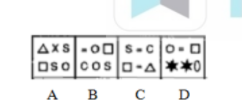Excess use of antibiotic has resulted in selection of resistant varieties of microbes. Select the option that does not support this view.
This exemplifies directional selection
This suggests evolution by anthropogenic action
This represents a case of organic evolution
It supports theory of spontaneous generation
To solve the question regarding the excess use of antibiotics and the selection of resistant varieties of microbes, we need to analyze the options provided and identify which one does not support the view that excessive antibiotic use leads to the development of resistance in microbes.
1. Understand the Concept: The question revolves around the idea that the overuse of antibiotics leads to the selection of resistant strains of microbes. This is a well-documented phenomenon in microbiology and evolutionary biology.
2. Review the Options: We need to evaluate each option to determine whether it supports the idea of antibiotic resistance or not.
3. Evaluate Option 1: "This exemplifies directional selection."
- Directional selection refers to a process where certain traits become more common in a population due to environmental pressures. In this case, the pressure is the use of antibiotics, which favors resistant microbes.
- Conclusion: This option supports the view.
4. Evaluate Option 2: "This suggests evolution by anthropogenic action."
- Anthropogenic action refers to changes in the environment caused by humans. The use of antibiotics is a human action that leads to evolutionary changes in microbes.
- Conclusion: This option supports the view.
5. Evaluate Option 3: "This represents a case of organic evolution."
- Organic evolution involves changes in the genetic makeup of populations over time, which can include the development of antibiotic resistance.
- Conclusion: This option supports the view.
6. Evaluate Option 4: "This supports the theory of spontaneous generation."
- The theory of spontaneous generation suggests that life can arise from non-living matter without genetic changes. This does not relate to the concept of antibiotic resistance, which involves genetic changes in response to environmental pressures.
- Conclusion: This option does NOT support the view.
7. Final Answer: The option that does not support the view that excess use of antibiotics has resulted in the selection of resistant varieties of microbes is Option 4: "This supports the theory of spontaneous generation."
- Directional selection refers to a process where certain traits become more common in a population due to environmental pressures. In this case, the pressure is the use of antibiotics, which favors resistant microbes.
- Conclusion: This option supports the view.
- Anthropogenic action refers to changes in the environment caused by humans. The use of antibiotics is a human action that leads to evolutionary changes in microbes.
- Conclusion: This option supports the view.
- Organic evolution involves changes in the genetic makeup of populations over time, which can include the development of antibiotic resistance.
- Conclusion: This option supports the view.
- The theory of spontaneous generation suggests that life can arise from non-living matter without genetic changes. This does not relate to the concept of antibiotic resistance, which involves genetic changes in response to environmental pressures.
- Conclusion: This option does NOT support the view.
Similar Questions
Knowledge Check
Select the option that was not used in Green revolution.
AAgrochemical based agricultureBConventional plant breeding and hybridizationCAgriculture using high yielding varietiesDGenetically engineered crop - based agricultureExcess use of herbicides or pesticides has resulted in selection of …………X……… varienties in a much lesser timescale and is a result of ………..Y……….. .
Select the correct option for X and Y.AX - resistant , Y - natural selectionBX - mutant , Y - genetic driftCX - resistant , Y - anthropogenic actionDboth (a) and (c )Given below are two statements each with one or more blanks. Select the option which correctly fills up the blanks in the statements.
Statements:
In a mixed population, those that can better-adapt, (i) and increase in population size. No variant is
(ii) wiped out.
Similarly, excess use of herbicides, pesticides, etc., has only resulted in selection of resistant varieties in a much
(iii) time scale. This is also true for microbes against which we employ antibiotics or drugs against eukaryotic organisms/cell. Hence, resistant organisms/cells are appearing in a time scale of months or years and not centuries. These are examples of evolution by (iv) action. This also tells us that evolution is not a (v) process in the sense of determinism. It is a (vi) process based on chance events in nature and chance
(vii)in the organisms.A(i) - survive, (ii) completely, (iii) lesser, (iv) anthropogenic, (v) direct, (vi) stochastic, (vii) mutationB(i) - survive, (ii) completely, (iii) lesser, (iv) anthropogenic, (v) indirect, (vi) stochastic, (vii) mutationC(i) - survive, (ii) completely, (iii) more, (iv) anthropogenic, (v) direct, (vi) stochastic, (vii) mutationD(i) - survive, (ii) incompletely, (iii) lesser, (iv) anthropogenic, (v) direct, (vi) stochastic, (vii) mutation
Explain antibiotic resistance observed in bacteria in light of Darwinian selection theory.
View SolutionSelect disease resistant variety of bhindi produced by mutation breeding:
View SolutionThree of the following options are somhow similar and forms a group. Select the option which does not belong to that group.
View SolutionAn antibiotic resistant gene in a vector usually helps in the selection of
View SolutionAn antibiotic resistance gene in a vector usually helps in the selection of :
View Solution

